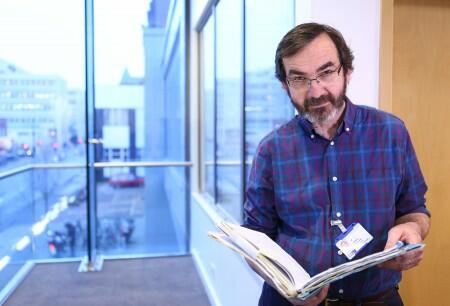
The Ebola epidemic in Sierra Leone, having peaked in December 2014 with over 500 cases per week, thankfully appears to be coming to an end.
The Ebola epidemic in Sierra Leone, having peaked in December 2014 with over 500 cases per week, thankfully appears to be coming to an end. As the nation journeys along the bumpy road to zero, with over 13,500 cases and 3,500 deaths along the way, optimism that the Ebola epidemic is nearing an end was shaken at the end of August when the long awaited countdown to 42 days free from Ebola abruptly ceased with a death in the community in Kambia District, in the North West of the country. Further cases are anticipated from among over 900 individuals currently quarantined in the affected village. Such events are expected at this stage of the epidemic and underline the importance of maintaining vigilance until and beyond the day when Sierra Leone is declared Ebola free.
Sierra Leone’s already fragile health systems have been effectively paralysed by the epidemic. As a consequence, the collateral damage in terms of morbidity and mortality from diseases other than Ebola has far exceeded that directly attributable to Ebola.
The challenge now is to build back better: create resilient health systems and services, whilst maintaining a high level of vigilance for Ebola and other epidemic prone infectious diseases. Establishing effective Infectious Diseases Surveillance and Response (IDSR) capacity at National and Regional level is a priority. Community engagement, a major challenge during the Ebola epidemic, will be crucial for the successful implementation of IDSR. In addition, promoting ‘Minimum Standards’ for the safe provision of optimal patient care in health facilities will help to ensure that any future epidemic threat is rapidly recognised and contained.
It has been a privilege, as one of several members of LSTM faculty, encouraged and supported by colleagues back in Liverpool, to be involved in the Ebola response and to encounter so many LSTM alumni working within the Ministry, NGOs, UN organisations and donors, collectively reflecting LSTM’s commitment to assist the people of Sierra Leone. As an institution, and through our alumni, LSTM is exceptionally well placed to offer the range of expertise that is needed to support Sierra Leone’s journey beyond the rocky road to zero Ebola and out along the highway of recovery to a healthier future. Thanks for your continued support.
Dr Tim O’Dempsey, currently on secondment from LSTM to WHO as Clinical Lead in Sierra Leone, has been involved in the Ebola epidemic response since July 2014.